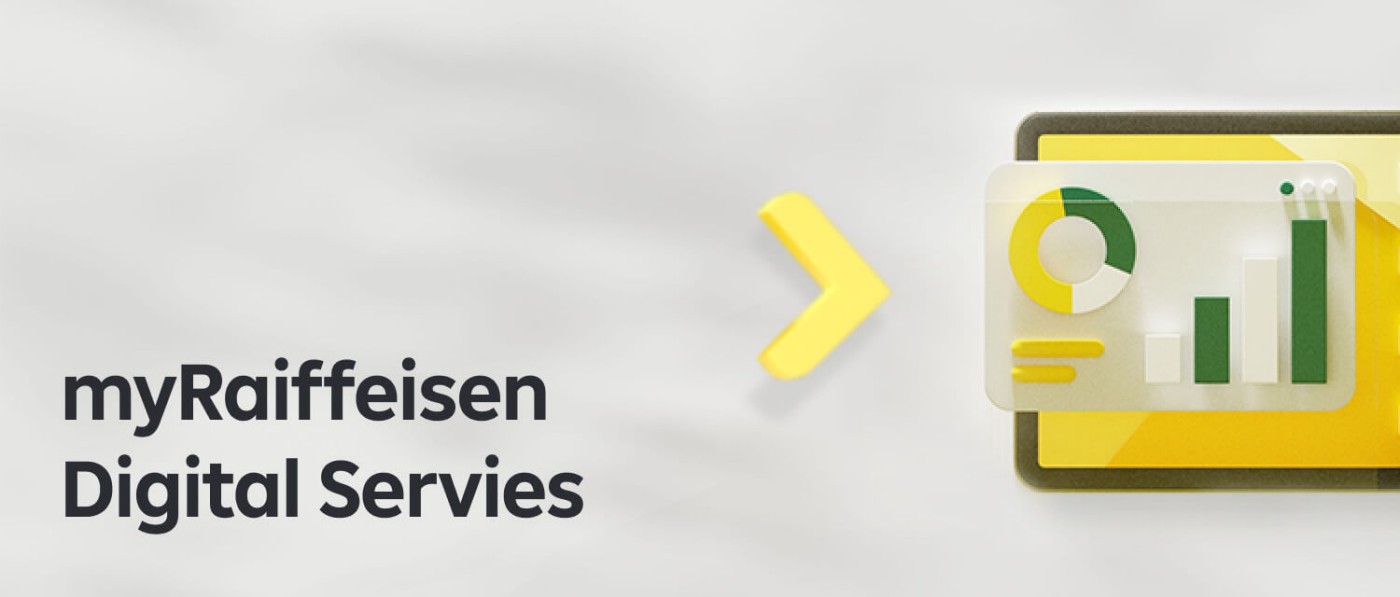
RBI: Digital Banking for Institutional Clients
Digital financial services make everyday banking easier and try to meet all customer needs. Institutional clients, such as banks, insurance companies, funds or payment service providers, have very specific expectations and requirements when it comes to digital banking. We asked our industry experts what institutional clients frequently request and which innovations and developments we will see on the market in the future.

The essentials
“A robust and secure infrastructure including direct memberships in EBA and TARGET2 is essential to ensure a smooth and efficient payment processing” explains Thomas Osztovits, Cash Management at RBI. “On top of that we participate in industry initiatives like Instant payments or SWIFT gpi for international cross-border payments always intending to be amongst the first movers”, he says. Institutional clients require detailed insights into their payment flows, transaction costs as well as liquidity positions to make informed decisions and manage risks effectively.
“What sets us as RBI apart here is our aggregator role in our core markets in CEE,” Thomas states, “Moreover our unique CEE Clearing Hub solution enables our clients to centrally process all EUR and local CEE currency payments in combination with best-in-class Cut Off times”.
Market perspectives
APIs offer new possibilities for Institutional clients – providing fixed as well as real-time FX rates via APIs to optimize liquidity positions, supporting Institutional clients to enlarge their currency range as well as increasing predictability and transparency of the payment business are actually becoming reality.
The essentials
“Complex and fast-paced, the capital markets and investment banking area need to meet high expectations in the digital realm. As a regional bank, you need to be able to serve and integrate end-to-end with market-standard solutions, especially regarding flow business”, tells us Jacek JURCZYNSKI, Head of Capital Market Sales at RBI. “When it comes to more complex solutions, direct contact is much requested – as well as harmonized offerings across the banking group.” Key to success are pricing engines in place so that the sales team is always able to price instantly and competitive.
Market perspectives
The currently ongoing ‘platformification’ trends in the MIB sector fosters positive disruption: “With our investment into the VC trade platform (being a European central marketplace for private debt), we are about to redesign the market standard for end-to-end execution of private debt instruments.”, explains Michael Bures, Head of Investment Banking & Corporate Advisory.

The essentials
“The digital essentials in this area depend on the size of the institutional client”, explains Werner Klapka, Trade Finance RBI. “Global banks usually have state-of-the-art trade finance back-end solutions in place and don’t have a critical need to receive regular reports of TF transactions from RBI as the actual status can be reported bank-internally with a few clicks. Regional/local banks on the other hand enjoy the service of a transparent overview of all active TF transactions in real time, for example via our proprietary front-end eTradeOn.”
Market perspectives
As for trends and innovations, the sector is very much alive. “Over the years, we have seen shooting stars, but also interesting digital transformation projects that failed because client interest was not there. Wherever we identify a need, we decide to go for this initiative together with our customer.
”Current routes worth exploring according to our experts are AML or ESG initiatives for trade finance, as well as multi-banking platforms. In August 2023 ICC and SWIFT published industry-wide API standards for bank guarantees. “We think that this could become a game-changer for interoperability and could be the starting point for a lot of interesting use cases we would like to implement together with our institutional clients.”
Furthermore, we would like to investigate the topic, how we can assist institutional clients in the drafting phase of new trade finance transactions. We are thinking of a “SWIFT generator” in eTradeOn where regional or local banks can pick and choose from a list of pre-agreed wordings for guarantees or letters of credit.

The essentials
When opting for business banking platforms rather than independent solutions, customer experience is key. “Clear must-haves are single sign-on, digital signatures and paperless processes - as far as possible. Transparency and processing speed are additional decision-making factors”, explains Elitza Kavrakova, Head Institutional Clients East.
“Our approach on myRaiffeisen is that we mirror the responsibilities on the client’s side”, adds Ferdinand Waldstein-Wartenberg, Head of Business Development, Markets & Investment Banking. In other words, this means that the feature bundles available on the platform shall also help the employees of RBI’s Institutional clients to handle everything necessary out of one platform.
Market perspectives
“The vision around future innovation is to bundle all existing client-facing features into myraiffeisen.com to provide a one-stop-shop for the entire life cycle of the relationship between RBI and its institutional clients”, Ferdinand says.

This might also interest you…
Individualize your banking experience and discover innovative and customized solutions for Institutional Clients.
Flexible. Efficient. Secure.
Related News
Be the first
Subscribe to Raiffeisen Insights. Get an e-mail with
the latest trends in the world of economics and business.